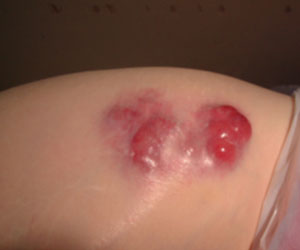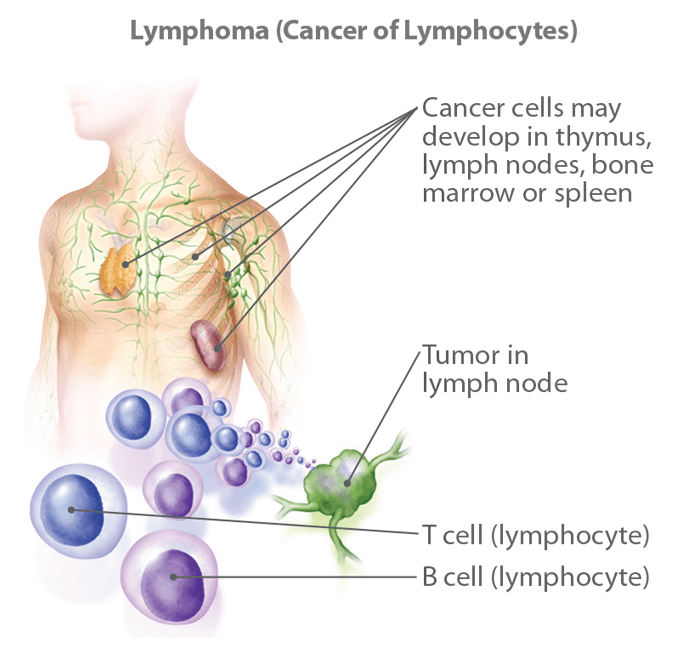
Lymphomas are a type of cancer that affects the lymphatic system, a network of tubes that carry fluid from the body to all of the organs in it. The lymph glands, a collection of tiny glands under the armpit, release fluid into the lymphatic system through ducts, through the skin and into the lymph nodes.
Lymphomas start in abnormal cell growth called tumor cells in the lymphatic system. Lymphedema is a pooling of fluid in the lymphatic system that usually forms when there’s damage or obstruction to the lymphatic system. This is the main symptom of lymphedema.
The lymph nodes are the sites where fluid travels to the surface of the body. When lymphomas invade these areas, they cause inflammation and blockage of the lymph nodes, causing symptoms like difficulty breathing, coughing, and pain. A lymph nodeectomy is one of the most common procedures used for lymphoma treatment. In a lymph nodeectomy, a doctor removes one or more lymph nodes so that they can be removed and analyzed.
The lymph nodes themselves are not cancerous, but some cancers are found only in lymph nodes. Because the lymph nodes are an important part of the immune system, if cancerous cells begin to spread to them, they can help to fight off the cancer. Therefore, a lymph nodeectomy may stop lymphoma from spreading to other parts of the body.
Chemotherapy is used to treat lymphoma because the disease begins to destroy the normal functioning of the lymphatic system through the use of chemicals. In chemotherapy, medications are given to kill the cancerous cells without damaging healthy tissue. For instance, if the cancer was found in the bloodstream, an intravenous drug might be used to kill the cancer cells without destroying the surrounding healthy tissue.
Surgery is another option to remove lymphomas. Surgery can kill the cancerous cells, but it also destroys the nerves that supply the lymphatic system and other organs. If the surgery is not successful, radiation therapy is often used to destroy the cancerous cells by using high energy beams. Radiation therapy has the same type of effect as surgery but does not cause tissue damage.

There are a number of different types of lymphomas, each with its own set of symptoms and causes. The most common types include: Hodgkin’s disease, pleural mesothelioma, non-Hodgkin’s lymphoma, Hodgkin’s disease, leukemia, non-Hodgkin’s lymphoma, and pleural mesothelioma. A thorough examination and physical examination is the first step in diagnosing the cause of your lymphoma. Diagnosis requires examining any changes in the lymph nodes and the fluid inside them to determine if they are cancerous or not.
Doctors use x-rays and blood tests to determine the type of lymphoma, its location, size, and stage. Once the diagnosis is made, lymphoma treatment is prescribed depending on the type of lymphoma. Treatment depends on its localization in the body and the degree of spread. You can learn more about possible treatment options on the website Eljolgorio Cultural México.
Treatment options for lymphomas depend on the type and location of the cancer. The first choice for doctors will be surgery. Other options are radiation therapy, which is one of the oldest forms of treatment for lymphomas, or radiation therapy.
Surgical removal of lymph nodes, especially those located in the chest, throat, or groin, is an operation. Chemotherapy is the use of drugs to kill cancer cells in the lymph nodes. This type of surgery is sometimes used to treat Hodgkin’s lymphoma.
Radiation therapy involves the use of high energy beams to kill cancer cells. Doctors usually prescribe this therapy in the form of tablets or injections. Radiation therapy is very effective at killing cancer cells but does not affect healthy tissue.
Another option for getting rid of lymphomas is called chemotherapy or radiation therapy. It is similar to surgery, except that it is used to treat both cancerous and healthy cells. Chemotherapy has the same side effects as surgery. Other options used are a combination of the two procedures, such as combination chemotherapy where allopathic medicine is combined with radiation therapy. These side effects may be worse than surgery and chemotherapy combined or easier to manage.


